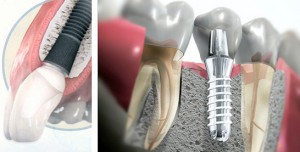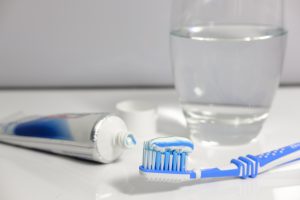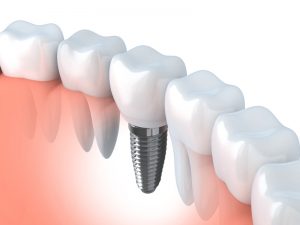![]()
Taking good care of implants helps to prevent serious diseases

Implants require continuous care and hygiene. Otherwise, the chances of the appearance of peri-implant diseases, such as mucositis or peri-implantitis, significantly increase.
- Peri-implantitis is the destruction of the bone that supports the implant due to an inflammation or irreversible bacteria infection.
- Mucositis is the inflammation of the gum of the implant and it is manifested by constant bleeding. It is reversible and not always implies the loss of the bone.
The best precautionary measure to prevent these diseases is to have a healthy mouth. If periodontitis is treated before the implants surgery takes place and correctly controlled afterwards, the risk of bone loss around the implants will be considerably reduced.
There are two warning signs which can make us notice the presence of mucositis and peri-implantitis: mucosal inflammation around the implants, and bleeding gums. These signs would require an urgent consultation with the dentist.
The main risk factors which would make the mouth prone to suffer these diseases are: presence of bacterial plaque, periodontitis, genetic factors and smoking.

However, prevention is easy. The maintenance of a good oral hygiene eliminating properly the bacterial plaque, the regular visit to the dentist and giving up bad habits, are the best ways to avoid the appearance of peri-implantitis.
![]()
Los implantes requieren un cuidado e higiene exhaustivos por parte del paciente; de lo contrario se favorece la aparición de enfermedades periimplantarias como la mucositis o la periimplantitis.
La periimplantitis es la destrucción del hueso que soporta el implante debido a una inflamación o infección bacteriana irreversible.
La mucositis es la inflamación de la encía del implante y se manifiesta por el sangrado, sin pérdida de hueso. Es reversible.
Como medida de prevención es importante una boca sana como punto de partida. Si antes de colocar los implantes se trata la periodontitis y posteriormente se controla correctamente, el riesgo de pérdida ósea alrededor de los implantes se reducirá considerablemente.
Hay dos signos que nos pueden avisar sobre la presencia de mucositis y periimplantitis y que, por tanto, requieren la consulta urgente al odontólogo: la inflamación de la mucosa alrededor de los implantes y el sangrado de las encías alrededor del mismo.
Los principales factores de riesgo son: presencia de placa bacteriana, antecedentes de periodontitis, factores genéticos y el consumo de tabaco.
No obstante, la prevención es fácil. El mantenimiento de una cuidadosa higiene bucal eliminando adecuadamente la placa bacteriana, la visita regular al odontólogo y la supresión de hábitos perjudiciales, son las claves para evitar que aparezca la periimplantitis.
